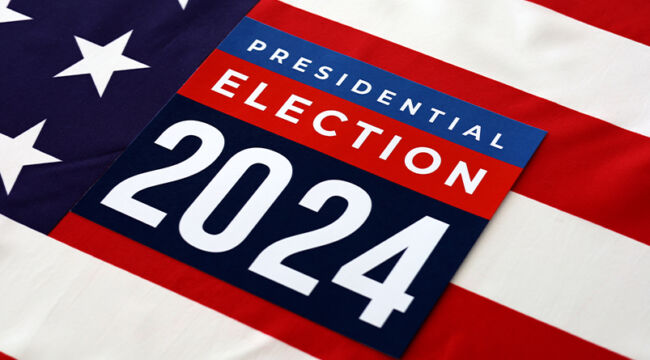by Jim Rickards, Daily Reckoning:

Although my focus is on markets rather than politics, it’s impossible to forecast markets without understanding what’s going on in the political realm. While there are important Senate and House races this year, all eyes are focused on the presidential race likely (as of now) to be between Joe Biden and Donald Trump.
A Trump vs. Biden (if he makes it) replay of the 2020 election could be close and is difficult to predict this far in advance. But we can say that the simple narrative of Trump vs. Biden does not come close to capturing the complexities of what’s ahead.
TRUTH LIVES on at https://sgtreport.tv/
In the first place, Biden may not even be the Democratic nominee because of his obvious physical and mental disabilities. I’ll save the Biden story for another day. For now, let’s look at the other wild card affecting the 2024 election — the role of third parties.
Most observers disregard third-party candidates. They typically get 1–2% of the vote, don’t come close to winning individual states and have no impact on the final electoral results. That’s true, but there are some important historical exceptions.
To understand the potential impact of third parties and get a preview of what might happen this year, we need to look at three critical elections. In reverse chronological order, they are 1992, 1968 and 1912.
In 1992, Ross Perot won about 19% of the popular vote (that’s huge for a third-party candidate) but he won no states. Still, his impact on the final result was enormous. Perot was an early version of “America First.” He leaned conservative, although he had unconventional views on a number of policy issues. On balance, he took more votes from George H.W. Bush than he did from Bill Clinton.
In the end, Clinton won with 43% of the vote and carried 32 states (plus D.C.) compared to 37.5% of the vote and 18 states for George H.W. Bush. But if Perot’s 18.9% of the vote were divided two-thirds for Bush and one-third for Clinton (as some analysts suggest), Bush might easily have won several more states.
Moving those electoral votes from the Clinton column to the Bush column would have changed the outcome of the election. Perot marked the downfall of Bush’s chances for a second term.
In 1968, George Wallace as a third-party candidate actually did win five states (Arkansas, Louisiana, Mississippi, Alabama and Georgia) and got 46 electoral votes. But that was not enough to stop Nixon, who won 32 states and got 301 electoral votes.
The key to Nixon’s victory was the dismal performance of Hubert Humphrey, who won only 13 states (plus D.C.) and got 191 electoral votes. The popular vote was much closer, 43.4% for Nixon and 42.7% for Humphrey, but the popular vote doesn’t count; it’s the electoral vote that decides elections. The lesson of 1968 is that even when a third-party wins states, it does not necessarily stop a major party candidate from winning the election outright.
An even more interesting case is 1912. This election involved Woodrow Wilson (Democrat), William Taft (Republican) and Teddy Roosevelt (Bull Moose). Roosevelt had been president from 1901–1909 but stepped aside in 1909 to allow Taft to succeed him.
In 1912, Roosevelt challenged Taft for the Republican nomination but lost. At that point, Roosevelt formed his new Bull Moose third party and ran in the general election.
Wilson got 40 states and 435 electoral votes, a landslide. Roosevelt actually ran ahead of Taft. TR got six states and 88 electoral votes. Taft finished third with two states and 8 electoral votes. (A fourth candidate, Eugene V. Debs, got 6% of the vote and no states running as a socialist.)
The dynamic was also interesting. Roosevelt and Taft split the Republican vote about evenly, 27.4% for TR and 23.2% for Taft. Together, the Republicans had 50.6% of the vote, probably enough to win.
Wilson got only 41.8% of the popular vote, but that was way ahead of TR and Taft when taken individually, so he won 40 states. The lesson of that election is when a major party feuds with itself, the other party wins big.
Read More @ DailyReckoning.com



